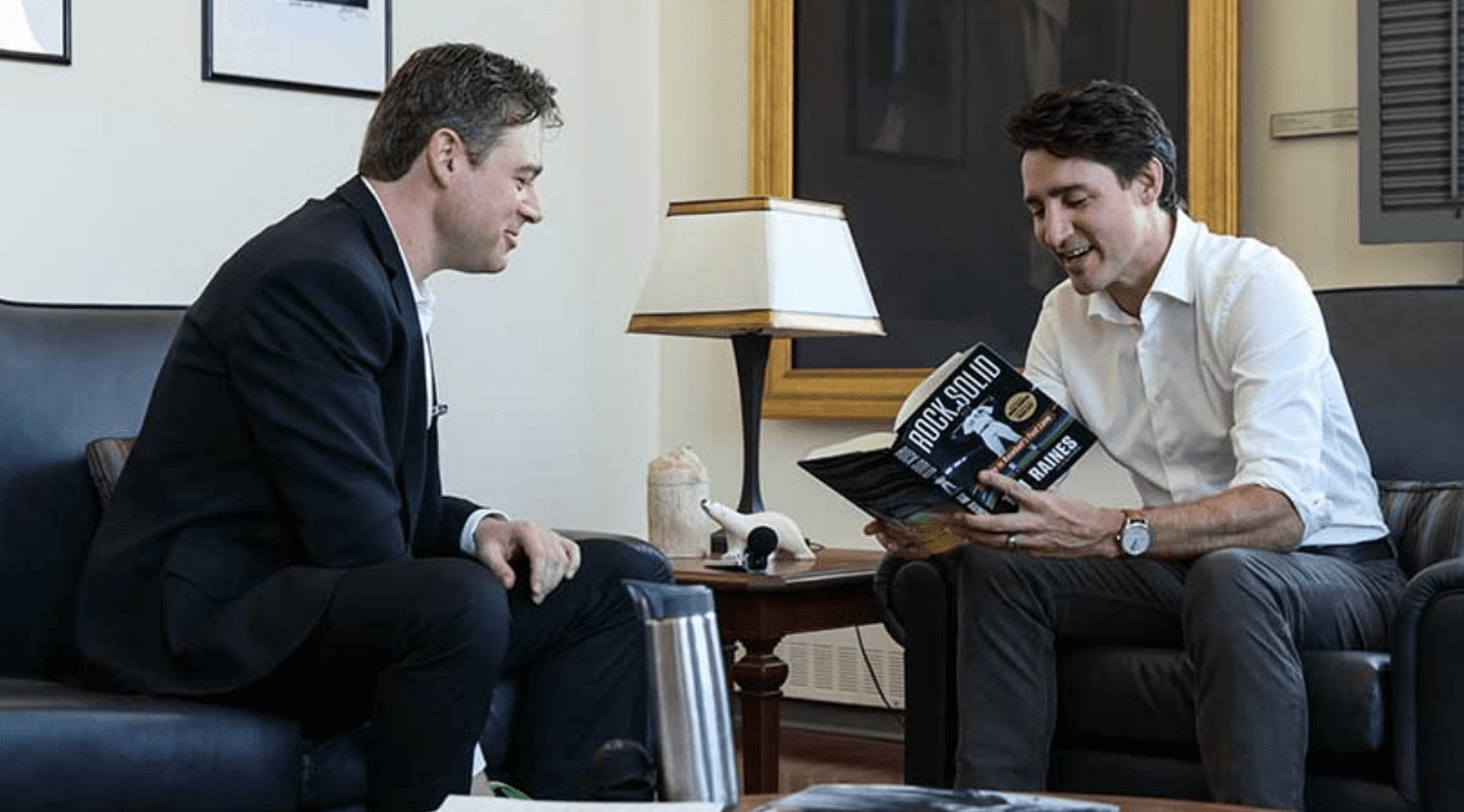Apparently, the Prime Minister's Office is hiring a "storyteller."
I must admit, when I first heard this bit of news, it seemed funny to me, in a "how could the government possibly do something so crazily stupid" sort of way.
Imagine using tax dollars to pay a "storyteller" nearly $100,000 a year to do nothing all day but spin yarns and tell tall tales about Prime Minister Justin Trudeau's government.
Isn't that what the Liberal communications staff is for?
In fact, as a joke, I even toyed with the idea of applying for the story teller job myself, submitting the following story as part of my resume:
"Once upon a time, there lived a handsome prince named Justin Trudeau, who was adored throughout the land. His wisdom was so great, his charm so awesome, his beauty so legendary, that before long, his lucky subjects realized he was the greatest leader to ever live in the entire history of the universe. The End."
Then I realized that joke really wouldn't work because the CBC basically tells that same story on an almost daily basis.
Moreover, I also began to realize that maybe the federal government hiring a "storyteller" wasn't so crazy after all.
Keep in mind, we humans are species which love stories.
Stories not only entertain us, but they also help us make sense of the world, which is why over the millennia we've concocted myths and legends and epics.
Indeed, we like stories so much that we even like to turn our perceptions of reality into something resembling a fictional narrative.
The ancient Greeks, for instance, began the tradition of dramatizing their history; tales of their past deeds were filled with action and suspense, heroes and villains, tragedies and triumphs.
Just read the works of Herodotus, an ancient Greek historian, who recorded the history of the Greek-Persian wars of the 5th century BC; he's the guy who portrayed the Spartans not only as fearsome bad-asses, but also gave them awesomely cool action one-liners that even Arnold Schwarzenegger couldn't match, i.e. when the Persians threaten to blot out the sky with their arrows, Herodotus has a Spartan reply, "Then we'll fight in the shade."
Take that Dirty Harry.
Ever since then, historians have basically been storytellers, experts who take a bunch of random stuff that happened in the past, and then mold it into stirring narratives to explain the rise and fall of Empires, to justify or condemn wars or to chart the course of some supposedly preordained course of history.
And these history stories can change: 100 years ago, historians told us John A. Macdonald was a national hero, today, they're telling us he was a terrible racist.
Journalists too like to be storytellers.
They will often take complex and complicated current events and boil them down into simplistic plots, plots which typically pit one-dimensional good guys against one dimensional bad guys.
For example, many in the media depict certain political personalities, such as Donald Trump and Stephen Harper, as irredeemably bad, while others, such as Justin Trudeau and Barack Obama, are cast as irredeemably good.
It makes for better conflict, which makes for a better story. Every Luke Skywalker needs a Darth Vader.
So, my point is stories are all around us, in history books, in our newspapers, on social media.
Is it any wonder then, that the Liberal government would want to employ a professional storyteller to help it frame its policies and agenda?
It seems only natural.
Yet, telling stories isn't easy.
Whether you're a government storyteller or a journalist or a historian, if the story you want to tell is going to click with the public, it must offer moral lessons, it must reassure us that the side of right and justice will ultimately prevail; it must, in short, lead us to believe that we'll live "happily ever after."
Understanding this truth, the media, at least, tries to deliver. When Trudeau won the federal election in 2015, for example, it was widely promoted in the mainstream media as a victory of idealism over cynicism, of light over dark, of good over evil.
The story had ended — "Sunny ways" had won.
But, in the real world, life has a way of going on: events keep occurring, circumstances keep changing, assumptions are proven wrong, all of which can sometimes challenge the media's preferred storyline.
Trudeau, for instance, has had his share of missteps, scandals and setbacks, which have somewhat undermined the media's "Trudeau is our political savior" narrative.
What's more, when it comes to Trudeau not all Canadians are religiously following the mainstream media's story arc; some are following different stories originating from "alternative" media, stories which have cast the prime minister as the bad guy.
All of this is leading to a disconnected society; not only are we growing increasingly disconnected from reality, but more and more we're also becoming disconnected with each other.
In other words, we're all getting so invested in media-spun stories, that we risk isolating ourselves on small intellectual islands which dot the seas of illusion. (Hey, that's a cool metaphor. Maybe I would make a good government story teller?)
At any rate, my point is, it's not healthy to lose sight of reality.
Is there anything we can do about this? Is there a way we can distinguish between stories and reality?
Well, maybe science fiction writer Philip K. Dick provided an answer, when he said, "Reality is that which, when you stop believing in it, doesn't go away."
Photo Credit: Maclean's






